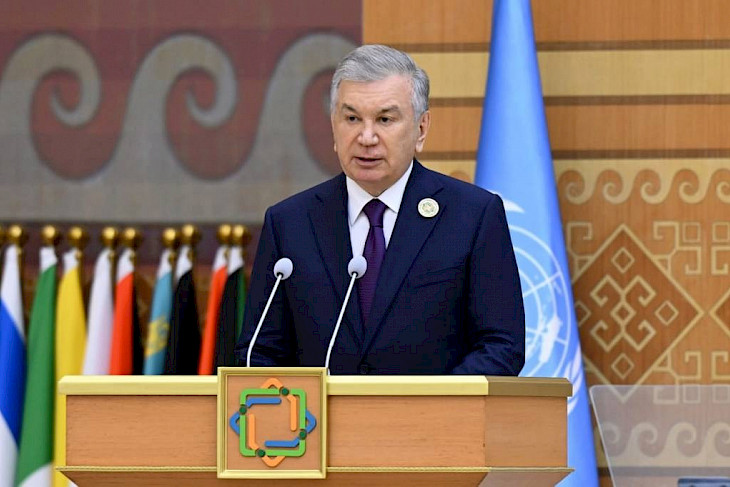At the UN Conference on Landlocked Developing Countries in Avavza, President of Uzbekistan Shavkat Mirziyoyev outlined major challenges and key initiatives aimed at improving transport connectivity and ensuring fair participation of such countries in the global economy.
He emphasized that Uzbekistan is geographically located nearly 3,000 km from the nearest seaport and must rely on transit through several countries. This results in high tariffs, overloaded corridors, and vulnerability to the foreign policies of transit states. According to the World Bank, Central Asia loses up to 2% of GDP annually due to transport costs, while logistics account for up to 60% of the cost of goods.
Uzbekistan is actively modernizing its logistics infrastructure and embracing digitalization. Reforms in investment climate, trade liberalization, and private sector cooperation have shown results: intra-regional trade has increased 4.5 times, and the number of joint ventures has grown fivefold.
Major projects are underway, such as the China–Kyrgyzstan–Uzbekistan railway and growing freight flows along the Uzbekistan–Turkmenistan–Iran–Turkey corridor. These efforts are transforming Central Asia into a vital transit hub connecting East, West, North, and South.
In his speech, President Mirziyoyev proposed six specific initiatives:
-
Infrastructure and Corridor Development
He called for accelerated construction of the Uzbekistan–Afghanistan–Pakistan railway and its connection to the China–Kyrgyzstan–Uzbekistan route. He also emphasized the importance of the Middle Corridor with harmonized tariffs. -
Global Agreement on Transit Guarantees
Uzbekistan proposed a UN-led international legal mechanism to ensure fair access for landlocked countries to global ports, reduce risks, and ensure equality. -
Logistics Integration Support Fund
A fund of approximately $40 billion annually was proposed to finance transport projects, with the support of donors, development programs, and international institutions. -
Global Vulnerability Index
Uzbekistan called for a tool that would objectively reflect the vulnerability of landlocked countries and guide international support and investment ratings. -
Agro-Innovation Hub
A proposal was made to establish a center for agricultural innovation in Uzbekistan, focused on water conservation, food security, and technology exchange. -
Involvement of Experts and Research Centers
Uzbekistan suggested activating the work of think tanks and hosting international forums on integration, digitalization, AI, startups, and investment. The country also aims to join the International Think Tank for Landlocked Developing Countries.
In conclusion, President Mirziyoyev stressed that equal access to global markets is not just an economic necessity but a foundation for sustainable development and global trust. Uzbekistan remains open to long-term and constructive cooperation for a fairer world order.
CentralAsianLIGHT.org
August 5, 2025

